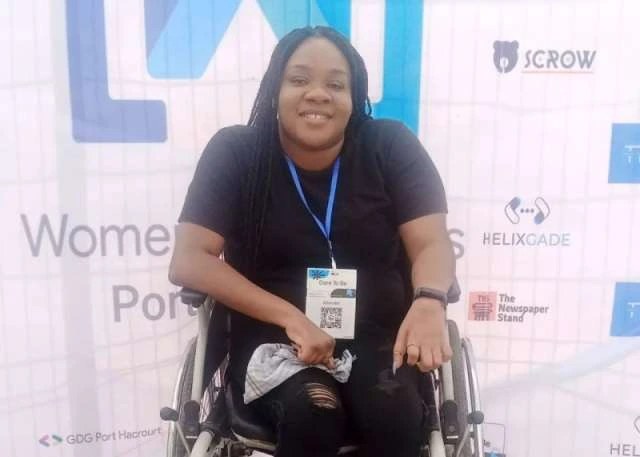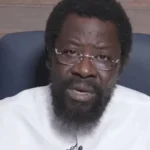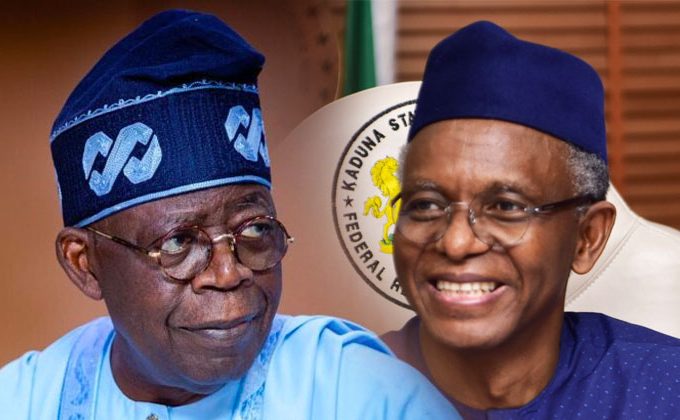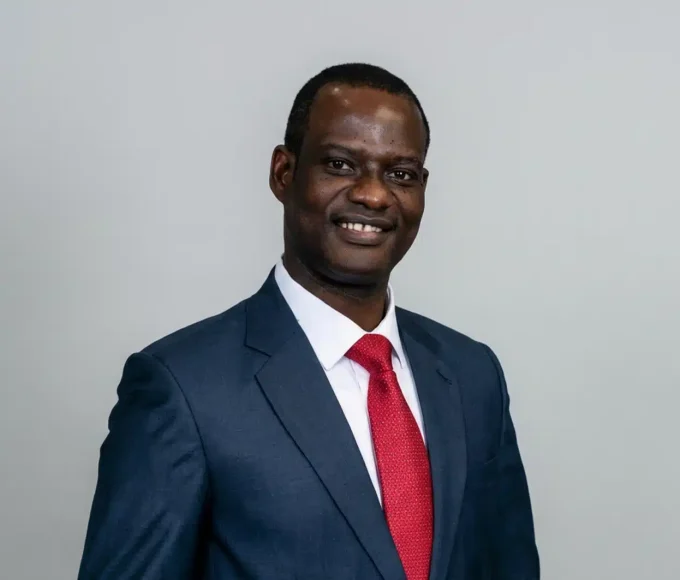
“I Was Carried Upstairs to Attend Class” – Disability Advocate’s Video Exposes Nigeria’s Failing Infrastructure, Lack of Inclusion

A video shared by a Disability Advocate and a Nguvu Change Leader, Adaobi Chuma-Okeke, on social media the day before the International Day of Persons with Disabilities has exposed Nigeria’s failing infrastructure and lack of inclusion.
In the video, Chuma-Okeke, a wheelchair user, recounted her experience as a student in Nigeria, where she had to rely on classmates to physically carry her upstairs to attend classes.
I finished my studies largely thanks to the help of supportive friends and classmates. I recall being physically carried upstairs to attend classes, and that experience, among many others, has inspired me to campaign for better accessibility in Nigerian schools,” she said.
The International Day of Persons with Disabilities is observed annually on December 3rd. It promotes the rights and well-being of persons with disabilities in all aspects of society and development. It also aims to increase awareness of the challenges faced by this community in political, social, economic, and cultural spheres.
The video, which reflects this year’s theme, ‘Amplifying The Leadership of Persons With Disabilities for an Inclusive and Sustainable Future’, has highlighted the barriers faced by Nigerians with disabilities, from inaccessible schools to public spaces that lack basic accommodations like ramps or elevators.
Although Nigeria’s Disability Rights Act mandates equal access and inclusion, Chuma-Okeke noted that the law remains largely unenforced.
Promises, policies, and laws must result in real, tangible changes. If every school – from primary to tertiary – had proper ramps and/or elevators, it would open up opportunities for countless children with disabilities to access their education,” she said.
She called on the Ministry of Education and the National Commission for Persons with Disabilities to take concrete steps to ensure accessibility in schools, workplaces, public transportation and healthcare services.
Aside from physical infrastructure, Nigeria’s disability community also faces challenges such as widespread stigmatisation and discrimination which often leave people with disabilities excluded from opportunities in education, employment, and public life. Public awareness about disability rights also remains low.
Chuma-Okeke urged leaders to focus on comprehensive policies that promote equal employment opportunities, social inclusion, and improved healthcare that would allow Nigerians with disabilities to live with dignity and respect.
Read More:
- Disney Unveils ‘Snow White’ Movie Trailer
- Despite Promises, Civil Servants and NYSC Members Yet to Receive N70,000 Minimum Wage
About The Author
Related Articles
Tinubu Deducts N100bn Monthly From Federation Account Without Approval El-Rufai Alleges Says Action Deserves Impeachment
Former Kaduna State Governor Nasir El-Rufai has launched a blistering attack on...
ByWest Africa WeeklyJanuary 26, 2026After Taiwo Oyedele’s Denials, Lagos State Activates ‘Power of Substitution’ Under Tinubu-Altered Tax Law, Allowing Authorities to Redirect Payments Without Court Orders
Lagos State has moved to activate a controversial enforcement provision in the...
ByWest Africa WeeklyJanuary 26, 2026Ivory Coast to Buy Unsold Cocoa to Support Farmers
Ivory Coast has announced a government plan to purchase unsold cocoa stock...
ByWest Africa WeeklyJanuary 23, 2026Ghana Moves to Reclaim Kwame Nkrumah’s Former Residence in Guinea
Ghana has embarked on a diplomatic and cultural initiative to reclaim the...
ByWest Africa WeeklyJanuary 23, 2026












Leave a comment